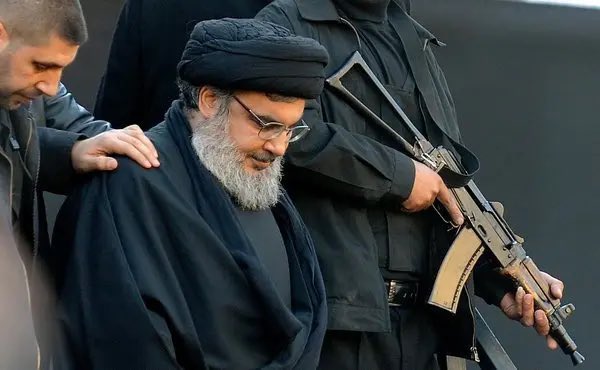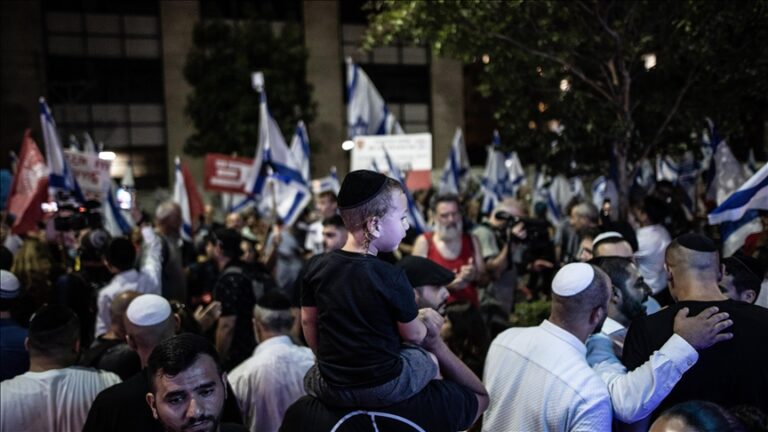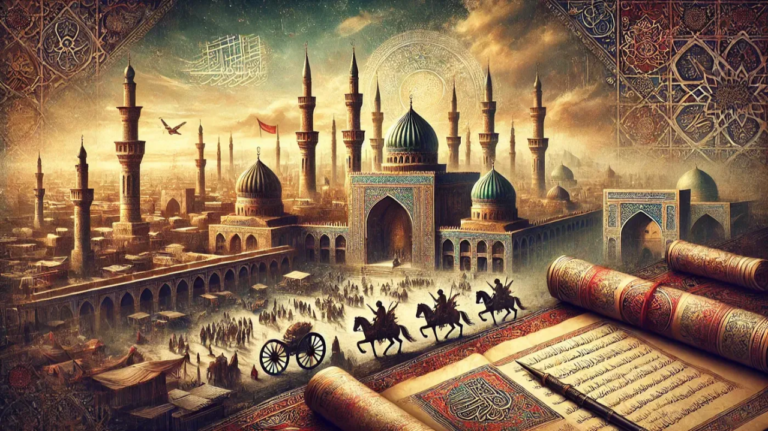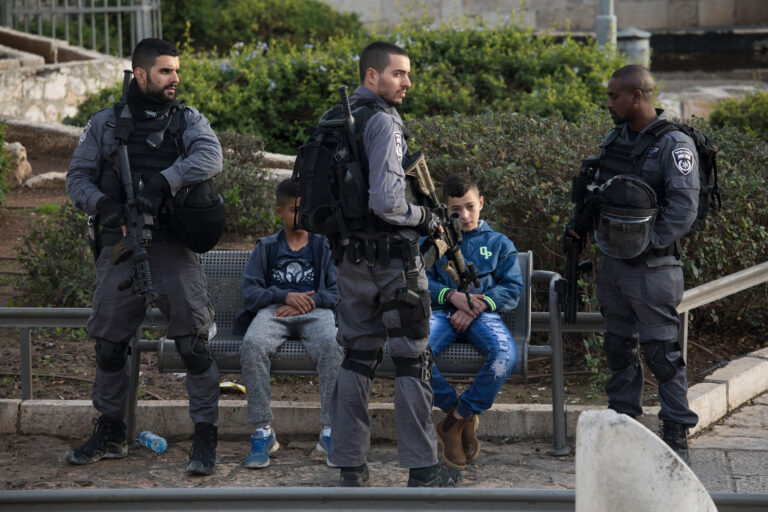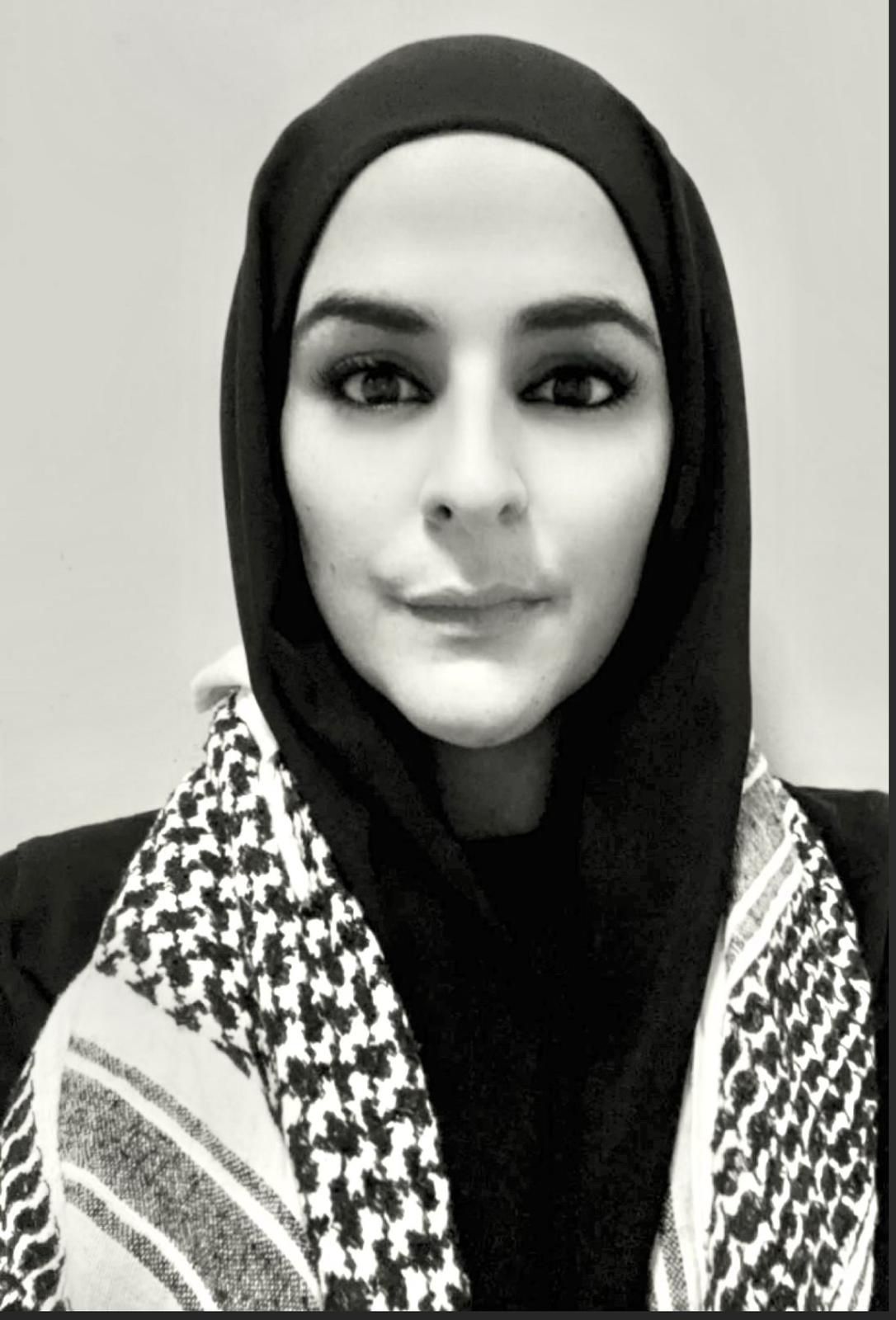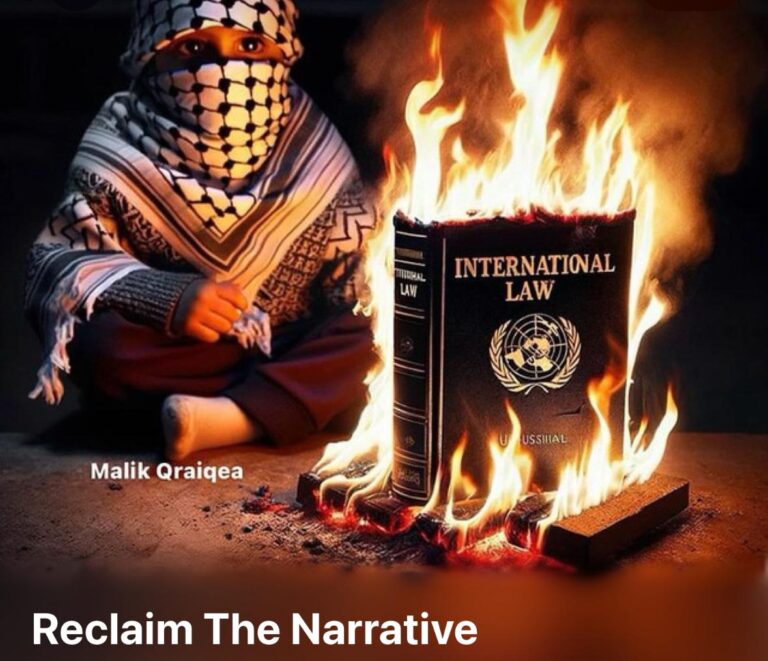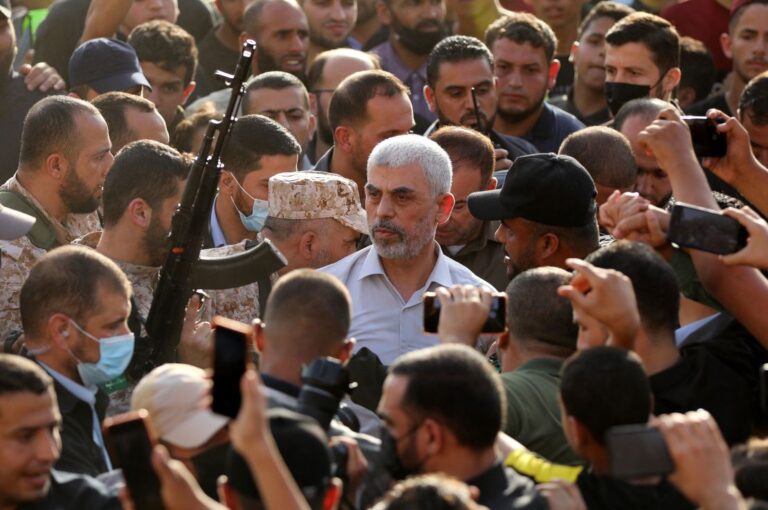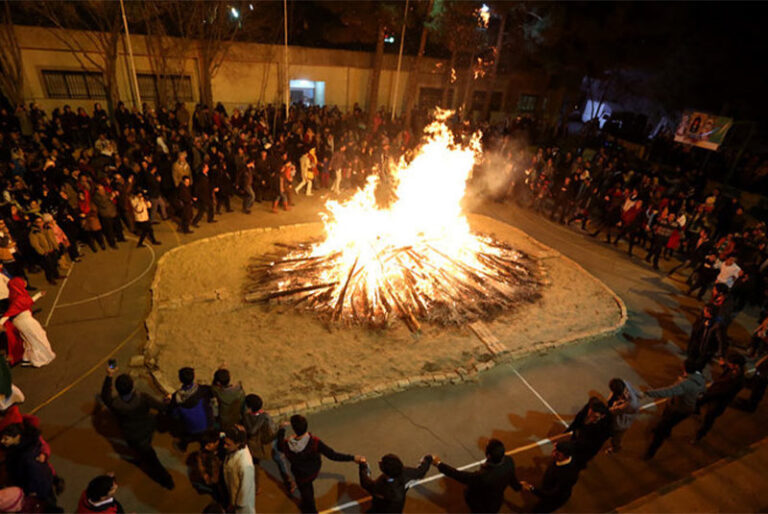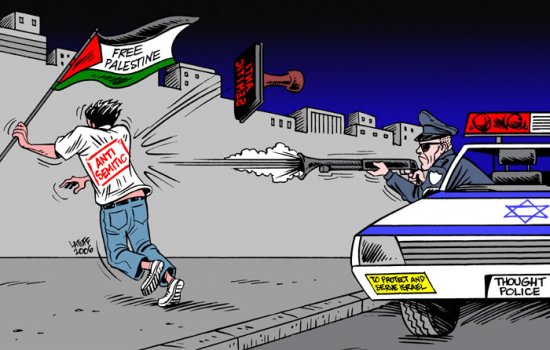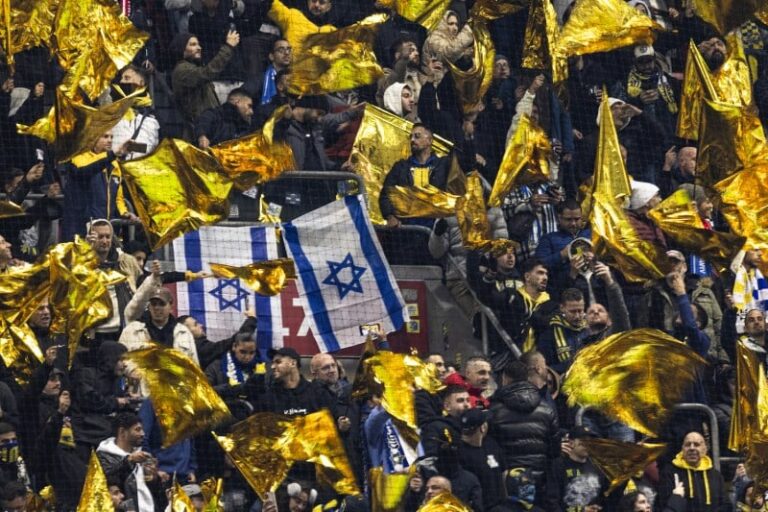Nasrallah led the anti-Israeli occupation group for over three decades. He was regarded as a pragmatist. The next leader after him is probably going to be more assertive against Israeli terrorism. (Photo credit: AP)
Hassan Nasrallah was loved by millions of Arabs and seen as a hero because he resembled the struggle against Zionist terror and subjugation in the region.
Nasrallah, like millions in the region are not prepared to accept a tiny slither of a country called Israel to be the dominating force in the region.
If we take the region of the Middle East as a whole and look at it as a country – the current situation resembles a tiny minority group in a country ruling over the vast majority, without their consent.
Israel can walk into Palestine whenever it likes, it can bomb Syria at its whim, can close the air space of Lebanon as it pleases.
That dynamic must change.
Iran thinks it can change that dynamic by acquiring nuclear capabilities. They might have a point.
If Israel can have one, backed by the US (the only country in the history of mankind to use a nuclear bomb), then Iran should have one too in order to address the power imbalance in the region, as a deterrence.
Iran has never invaded or begun a war with any nation ever since its creation – Israel has started many – and continues to do so today.
Unbeknown to many, Nasrallah believed in equal rights for Jews, Christians and Muslims to live in the space between the Mediterranean Sea and the Jordan river.
He outlined this vision in an interview he did with Julian Assange in 2012:
If you haven't already, I highly recommend the interview by Julian Assange with Nasrallah from 2012.
— Ousman Noor (@ousmannoor) September 28, 2024
Nasrallah believed in achieving a One State Democratic Solution in which all people, Jews, Muslims, Christians and others would share the land and exercise equal rights, freedom… pic.twitter.com/pYY0be2caQ
Hassan Nasrallah was elected the Secretary-General of Hezbollah 1992, following the assassination of his predecessor, Abbas al-Musawi.
He grew and shaped the group to become a prominent player in Lebanese politics and today is considered a key actor in the Middle East’s political and military landscape.
Nasrallah led Lebanon’s war against Israel in 2006, and confirmed a place in the history books after they chased Israel out of Lebanon.
Here are some of the key battles and engagements under Nasrallah’s leadership:
The South Lebanon Conflict (1980s–2000)
Following the Israeli invasion of Lebanon in 1982, Hezbollah emerged as a resistance group aiming to expel Israeli forces from southern Lebanon.
Nasrallah, who took over leadership of Hezbollah in 1992, played a crucial role in directing the group’s guerrilla warfare against Israeli forces and the Israeli-backed South Lebanon Army (SLA).
Hezbollah, under Nasrallah, frequently carried out ambushes on Israeli troops and launched rocket attacks on northern Israel, creating pressure for Israeli withdrawal.
Operation Grapes of Wrath (1996): A significant Israeli military operation in response to Hezbollah’s attacks on northern Israel. Hezbollah retaliated with rocket fire, causing heavy Israeli casualties. In May 2000, Israel withdrew its forces from southern Lebanon after nearly two decades of occupation, marking a major victory for Hezbollah and boosting Nasrallah’s reputation as a symbol of resistance.
The 2006 Lebanon War (July–August 2006)
On July 12, 2006, Hezbollah fighters, under Nasrallah’s command, launched a cross-border raid into Israel, killing three Israeli soldiers and capturing two, sparking a full-scale war.
Hezbollah employed guerrilla tactics, including ambushes, missile strikes, and the use of fortified positions in southern Lebanon.
The group fired thousands of rockets into northern Israel, causing military casualties and significant disruption.
Nasrallah personally ordered the use of long-range missiles to strike deeper into Israeli territory, hitting cities like Haifa for the first time.
Israel responded with heavy aerial bombardments and a ground invasion targeting Hezbollah strongholds and southern Lebanese infrastructure.
The Israeli military aimed to degrade Hezbollah’s military capabilities but faced stiff resistance from Hezbollah fighters using a network of tunnels and fortified bunkers.
The war lasted 34 days and resulted in significant casualties on both sides, with over 1,200 Lebanese and around 160 Israelis killed.
Israel claimed to have weakened Hezbollah militarily, though Nasrallah and neutral observers saw the wat as a victory for Hezbollah, as Israel failed to achieve its primary goal of disarming the group or rescuing the captured soldiers.
Hassan Nasrallah was successful in positioning himself and Hezbollah as the protectors of Lebanon, against Zionist terror. And thus, gained the trust of millions of Lebanese people.
They mourned uncontrollably after hearing of his assassination:
Beirut – Rafic Hariri International Airport on Saturday – Lebanese mourn after hearing of the assassination of Hassan Nasrallah, during Israel’s terrorist attack on Beirut on Friday.
— Kamran Hussain (@Kamran28Hussain) September 29, 2024
The attack also indiscriminately killed hundreds of civilians. pic.twitter.com/JokMdVjTMK
Nasrallah’s assassination is being mourned all across Lebanese society – Lebanon has a substantial Christian population. Circa 40% of the population is Christian.
Sleiman Frangieh, leader of Lebanon’s Christian political party Marada and Hezbollah’s preferred candidate for the presidency, posted a brief statement on X, on Saturday.
“The symbol is gone, the legend is born, and the resistance continues,” he wrote.
َرَحَل الرمز ووُلِدت الأسطورة وتستمرّ المقاومة.
— Sleiman Frangieh (@sleimanfrangieh) September 28, 2024
Former Lebanese President and General, Michel Aoun, a Christian and founder of the Free Patriotic Movement party posted a lengthier statement praising Nasrallah as a martyr for the country.
“With the martyrdom of His Eminence the Secretary-General of Hezbollah, Sayyed Hassan Nasrallah, Lebanon loses a distinguished and honest leader who led the national resistance on the paths of victory and liberation.
He was faithful to his promise and loyal to his people who reciprocated his love, trust and commitment,” he wrote on X.
باستشهاد سماحة الأمين العام لحزب الله السيد حسن نصرالله، يفقد لبنان قائداً مميزاً وصادقاً، قاد المقاومة الوطنية على دروب النصر والتحرير؛ فكان اميناً لوعده، وفياً لشعبه الذي بادله حباً وثقة والتزاماً.
— General Michel Aoun (@General_Aoun) September 28, 2024
واذا كانت يد العدو قد نالت منه وهو في منتصف مسيرته الوطنية، فإنه سيلاقي ربه…
The former Lebanese president described Nasrallah as “an honourable friend.”
He also warned against the “dangers” Lebanon is “witnessing as a result of the ongoing Israeli aggression,” calling for national unity.
“May God grant the great martyr a spacious place in heaven, and condolences to his family, the resistance, all his loved ones, and all of Lebanon,” Aoun wrote.
Under Lebanon’s power-sharing government system, the president must always be a Maronite Christian.
Lebanon is a good example of how a Christian-Muslim alliance could work in the battle against the terrorising ideology of Zionism.

